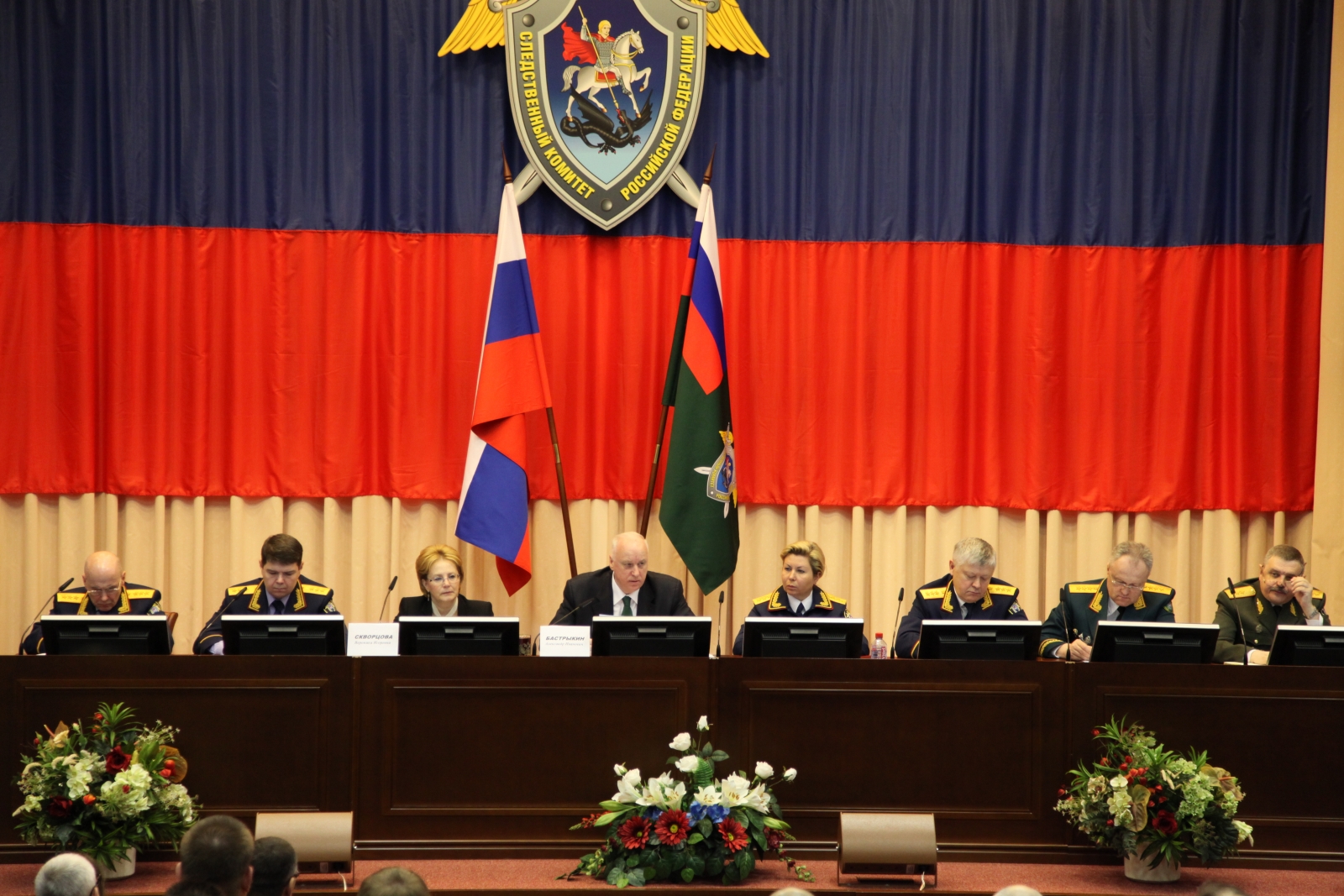
Address of the reception office of the Investigative Committee: Moscow, ul. Pervaya Frunzenskaya, d 3a
Address for writtent applications: 105005, Moscow, Tekhnichesky Pereulok, 2
Address of the reception office of the Investigative Committee: Moscow, ul. Pervaya Frunzenskaya, d 3a
Address for writtent applications: 105005, Moscow, Tekhnichesky Pereulok, 2

A meeting of the board “On practice of assigning forensic examinations including paid ones and examinations during review of crime reports and investigations and on efficient use of their results in proving” has been held today in the Russia’s Investigative Committee. The meeting was presided over by Alexander Bastrykin and attended by Minister of Health Veronika Skvortsova, officials of the Investigative Committee Central Office, Ministry of Health and senior officials of the investigating bodies in federal subjects.
Talking about importance of the issues related to expert examinations the Chairman of the Investigative Committee noted that: “It often happens that timely received results of qualitatively run expert examinations determine the final conclusions made by investigators on the guilt or innocence of the accused. In 2014, experts of the Investigative Committee ran over 22 thousand examinations and inquiries, which is 18% more than in 2013”. Mr. Bastrykin stressed that “experts of the Main Forensic Office have started using method of laser microdissection in DNA tests for the first time in the history of Russian forensic genetics”. “In 2014, 5 DNA laboratories made up of 56 experts ran over 4 thousand DNA tests and inquiries of 45 thousand 600 objects”, - the Chairman said.
The meeting also noted that in all, in 2014, investigators of the Investigative Committee assigned 342 thousand forensic examinations and enquiries. The most needed ones were forensic medical examination (in 2014 – 219,899 results), psychiatric (over 40 thousand tests), dactylographic (over 17 thousand examinations).
At the same time, the Investigative Committee continues developing its expert service. 22 types of expert examinations are arranged in forensic offices of investigating authorities. Two new district DNA laboratories started operating last year: in Volga and in Urals Federal District. Genotypes of unidentified people suspected of over 1.5 thousand crimes have been put on record.
The board took measures aimed at raising efficiency of cooperation with expert facilities and measures to organize control over timeliness of assigning forensic enquiries related to cases investigated by the Russia’s Investigative Committee.